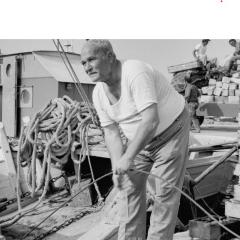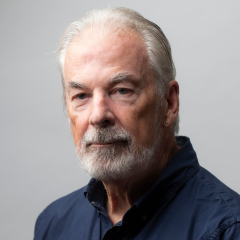A new $300,000 project from The University of Queensland is teaching Mongolian journalists’ specialist reporting of the resources industry.
UQ International Development (UQID) collaborated with UQ’s School of Communication and Arts (SCA) and Sustainable Minerals Institute (SMI) to design the innovative training program that will be delivered in Mongolia and Australia across 2016 and 2017.
Funded by The Deutsche Gesellschaft für Internationale Zusammenarbeit (GIZ) GmbH – the German Federal Government owned international development company – the project works with the GIZ program Integrated Mineral Resource Initiative (IMRI) based in Ulaanbaatar.
IMRI assists Mongolian journalists to improve the quality of economic and business reporting and increase the coverage of critical mining related topics for sustainable development.
Lecturer Bruce Woolley from UQ’s School of Communication and Arts recently returned from Mongolia where he travelled with Deputy Director of SMI Robin Evans to facilitate phase one of the project – a five-day course on principles in journalism and key themes in mining to a group of 20 Mongolian journalists.
The project will run for a total of five weeks split across four phases.
“GIZ wanted to fund training for journalists who cover mining to teach them to be more thoughtful in their reporting – less ‘going with the headlines’ and more in-depth knowledge of the subject,” Mr Woolley said.
“It’s important to look at balance, the quality of the information, and make sure you’re not just taking into account what the industry has to say but what local communities say, what environmentalists say and what the government has to say,” he said.
Among others, participants of the course included government public relations staff, Head of Journalism at Otgontenger University, a representative from Bloomberg TV Mongolia and two from the Mongolian Mining Journal.
“We were alternating topics over eight-hour days e.g. gender in mining, journalism in the 21st century, environmental issues surrounding mining, being a specialist reporter etc.”
Mr Woolley said there is obviously a need to distribute this sort of information as after the course, representatives from the Mongolian Mining Journal took the teaching materials with them to teach another 50 journalists on the Saturday afterwards.
Ms Bolor Zaankhuu took part in the project and said it was very beneficial and an excellent program for journalists at a much-needed time.
“We learnt about the key issues in mining practices around the world and had a chance to speak to experts in the field, learn about the storytelling techniques, and how to incorporate multimedia in newsroom and interviewing skills,” Ms Zaankhuu said.
The second stage of the project will see Mr Woolley and Mr Evans return to Mongolia for five days next month to run a ‘pop-up newsroom’.
“Some of the same participants will be involved in this part of the project, but there will also be a group coming from the regions,” Mr Woolley said.
They then head back to Mongolia in February for the final time to plan stories they can follow up in Australia in March, when UQ will play host to the Mongolian journalists for two weeks and take them to see coal mining operations on the Darling Downs as well as media outlets like the Toowoomba Chronicle and ABC Southern Queensland.
The project will conclude at the end of March with the idea that participating students will integrate their learning back into their workplaces in Mongolia.
Media: Mr Bruce Woolley, (T) 07 3346 8256, (E) b.woolley@uq.edu.au, (M) 0488 798 679.



